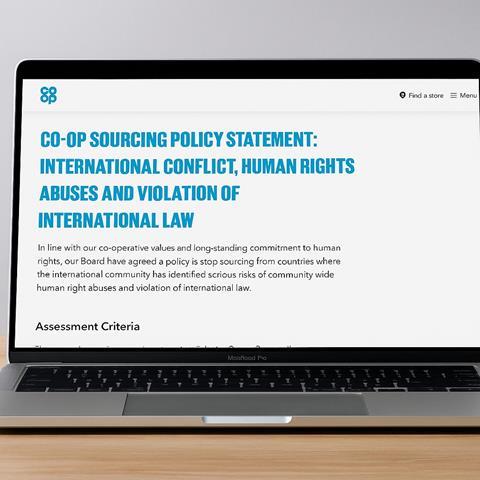Fresh produce exporters in Israel suggest retailers across Europe are quietly ceasing procurement of Israeli goods, as Gaza’s humanitarian situation worsens

Israeli farmers and food exporters say they are seeing a growing boycott of Israeli agricultural goods across Europe, including in staunch ally Germany, according to Israeli Ynet, as Israel’s war in Gaza continues.
One Israeli farmer reported to the news site what a German retail buyer had told them: “It’s hard to place ‘Produce of Israel’ on the shelf when the newspaper headline reads ‘genocide’.”
“In the past two weeks, we’re hearing louder voices calling for a boycott in Germany, and that’s new,” a potato exporter told Ynet. “For six weeks now, Aldi has been doing everything possible to avoid buying from us.”
The UK’s Coop announced last month that it would stop sourcing goods from Israel, as well as 15 other countries where it says there are “internationally recognised” rights abuses and violations of international law.
The retailer, which has around 2,300 grocery stores in the UK, has drawn up a list of about 100 products affected by the change, including Israeli carrots and mangoes from Mali.
Other countries covered by the Coop’s ban, which is being gradually implemented, include Russia, Iran, Syria, Belarus, Afghanistan, Myanmar and Sudan.
Yaniv Yablonka, CEO of Yapro, which exports around 50,000 tonnes of potatoes annually to 11 European countries, said Co-op is just the only chain to publicly declare its boycott.
He told Ynet: “Most retailers tell packing houses privately: ‘Don’t bring us Israeli goods, we don’t want BDS trouble or protests — just get it from Morocco or Egypt.’ But Co-op is the only one that comes out and says it publicly.”
Debbie White, the chair of the Co-op Group board, said the policy was a “clear demonstration of our co-operative values in action, where the voices of our members have been listened to and then acted upon.
“We are committed, where we can, to removing products and ingredients from our shelves which are sourced from those countries where the international consensus demonstrates there is not alignment with what happens in those countries and our co-operative values and principles.”
Last month, Ireland became the first country in Europe to introduce legislation to ban trade with Israeli settlements in the West Bank and East Jerusalem.
Irish foreign affairs and trade minister Simon Harris, along with counterparts from Belgium, Finland, Luxembourg, Poland, Portugal, Slovenia, Spain and Sweden, also called on the European Commission to create proposals for EU states on how to discontinue trade with Israeli settlements, in line with obligations stated by the ICJ.
The war in Gaza has also severely impacted farms in Israel, leading to shortages of fresh produce and a surge in agricultural imports. In 2024, Israel imported 227,000 tonnes of fruits and vegetables from 30 countries, marking a 13 per cent increase compared with 2023.
Three-quarters of those imports were in five products – apples, onions, tomatoes, garlic and pineapples.
Oren Lavi, director general of the Ministry of Agriculture, said the ministry was promoting a long-term strategy of bolstering local production, with an aim to increase domestic agricultural production by 30 per cent over the next decade.
For hungry Gazans facing lethal queues for scant food aid, survival remains the sole goal. As Gazan fruit and vegetable producer Ayed Awni Aburamadan, who fled his farm in the north in late 2023, told Fruitnet: “We are still alive, and trying to keep as safe as possible.”



